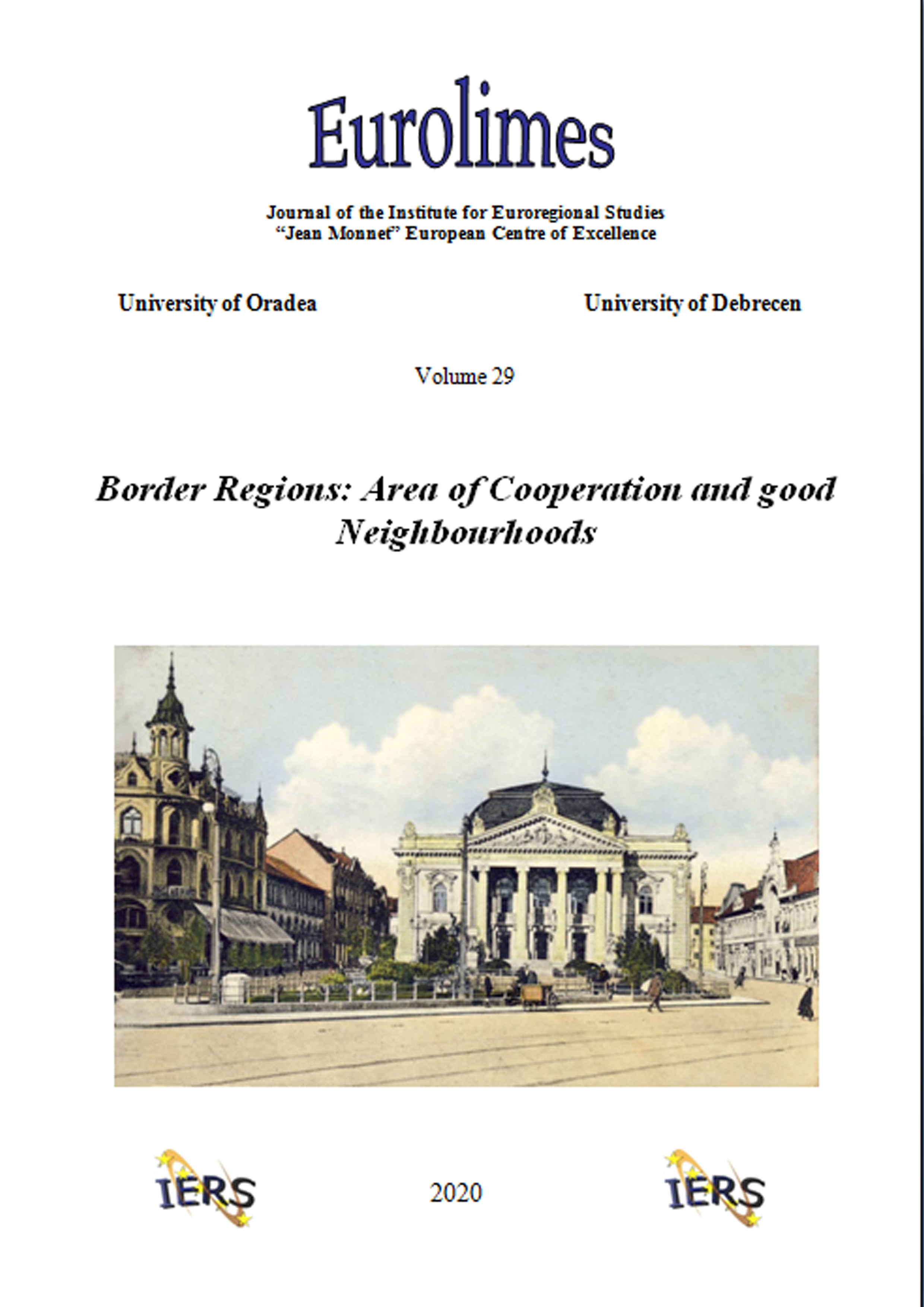Border Regions – Areas of Cooperation and Good Neighbourhood. Theoretical Considerations
Border Regions – Areas of Cooperation and Good Neighbourhood. Theoretical Considerations
Author(s): Florentina ChirodeaSubject(s): Politics / Political Sciences, Political Sciences, Governance, Geopolitics
Published by: Editura Universitatii din Oradea
Keywords: border region; INTERREG; ERDF; cross-border cooperation;
Summary/Abstract: In the academic landscape of the social sciences, theoretical interest in border regions has long been neglected due to a widespread current of thought among researchers, which highlights the uniqueness of any area adjacent to a state border. Intrinsically linked to the multiple meanings assigned to borders, the concept of border region can be defined in a variety of ways, depending on the field of research and the viewpoint adopted. In the middle of the last century, border studies approached the issue of the areas near borders only tangentially, focusing particularly on defining the concept of border and on the impact of such demarcation lines upon the socio-economic interactions taking place among such border regions. Any analysis conducted during the aforementioned period was performed taking into account only the national context1. The isolated position of border zones, their orientation towards the central areas of the country and ignorance as regards their neighbours on the border made them typical examples of peripheral regions.
Journal: Eurolimes
- Issue Year: 29/2020
- Issue No: 29
- Page Range: 5-15
- Page Count: 10
- Language: English
- Content File-PDF

